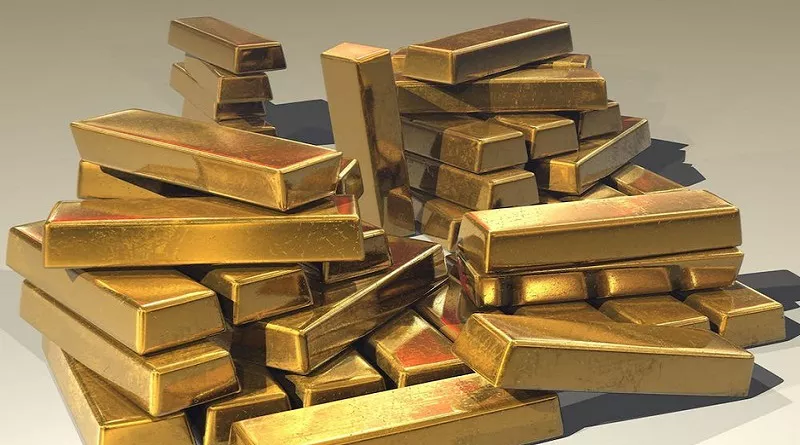As Ghana’s financial environment evolves, investors are urged to adapt to emerging trends to safeguard and grow their wealth. With Treasury bill (T-bill) rates on the decline and the Ghanaian cedi gaining strength, traditional low-risk investments such as T-bills, cash deposits, and U.S. dollar holdings are losing their appeal.
At the same time, the formalization of gold trading through the recently launched Ghana Gold Board (GGB) introduces fresh avenues for investors seeking higher returns in this dynamic market.
Promising Investment Options in Ghana’s Changing Economy
Real Estate: Capital Growth Coupled With Consistent Income
Real estate remains a robust investment choice, offering both long-term capital appreciation and steady rental income. With rapid urbanization and a persistent housing shortage, cities like Accra, Kumasi, and Takoradi are hotspots for real estate opportunities. Investors can explore:
- Residential Properties: Targeting middle-income earners and expatriates.
- Commercial Real Estate: Including office buildings, retail centers, and industrial warehouses.
- Real Estate Investment Trusts (REITs): Offering indirect exposure with lower capital outlay.
Private Equity and Venture Capital: Tapping High-Growth Sectors
Ghana’s thriving start-up ecosystem—especially in fintech, agritech, healthcare, and renewable energy—presents attractive prospects for private equity (PE) and venture capital (VC) investors. Investment approaches to consider are:
- Early-Stage Investments: High-risk ventures with significant upside.
- Impact Investing: Focused on sectors like agriculture, education, and clean energy.
- Angel Networks: Spreading risk through partnerships with other high-net-worth investors.
Gold Market Formalization: Opportunities via Ghana Gold Board (GGB)
The establishment of the GGB as the exclusive body authorized to buy, sell, assay, and export gold from licensed small-scale miners creates a regulated environment for gold trading. Investors can benefit through:
- Gold-Backed Securities: Including digital gold products and exchange-traded funds (ETFs) linked to gold prices.
- Gold Mining Stocks: Shares in companies engaged in exploration and production.
- Gold Royalties and Streaming: Earning income from future gold production without direct operational risks.
Stock Market: Capitalizing on Economic Recovery
The Ghana Stock Exchange (GSE) continues to offer opportunities for long-term growth, particularly in sectors expected to rebound:
- Financial Services: Banks and insurance firms poised for recovery.
- Telecommunications: Benefiting from increased demand for data and mobile money services.
- Manufacturing and FMCGs: Companies with strong local supply chains and brand loyalty.
Fixed-Income Alternatives: Beyond Traditional T-Bills
With declining T-bill yields, investors may seek higher returns from:
- Corporate Bonds: Offering better yields than government securities, albeit with increased risk.
- Eurobonds and Diaspora Bonds: Foreign currency instruments popular among Ghanaians abroad.
- Mutual Funds and Unit Trusts: Diversified investments across multiple asset classes.
Agriculture and Agribusiness: Investing in Tangible Assets
Agriculture remains a cornerstone of Ghana’s economy, supported by initiatives like the West Africa Food System Resilience Programme (FSRP). Options include:
- Direct Farm Investments: In crops, livestock, or aquaculture.
- Agribusiness Funds: Covering the full agricultural value chain.
- Commodity Trading: In staples such as maize, rice, and soybeans.
Digital Assets and Cryptocurrency: High Risk, High Reward
While volatile, digital assets offer diversification potential amid inflation and currency fluctuations. Potential investments comprise:
- Major Cryptocurrencies: Bitcoin and Ethereum.
- Stablecoins: Such as USDT and USDC, pegged to fiat currencies.
- Blockchain Start-ups and NFTs: Emerging platforms leveraging blockchain technology.
Note: Regulatory authorities in Ghana are urged to accelerate the establishment of a comprehensive framework to protect investors in this rapidly evolving space.
Understanding Blockchain and NFTs
Blockchain start-ups utilize decentralized digital ledgers to ensure transaction security, transparency, and immutability. Key features include smart contracts that automate agreements without intermediaries. Notable examples include Coinbase, Chainlink, and OpenSea.
Non-fungible tokens (NFTs) represent unique digital assets with verifiable ownership, distinct from interchangeable cryptocurrencies. NFTs cover digital art, virtual real estate, collectibles, music, and gaming assets.
Offshore Investments: Managing Currency Risks
While pension funds in Ghana face limitations on overseas investments, individual investors can access global markets through:
- Foreign Mutual Funds: Exposure to international equities and bonds.
- Real Estate in Stable Economies: Including Portugal, Dubai, Spain, and Canada.
- Global Index Funds: Offering broad market diversification.
Building a Resilient and Diversified Portfolio
In today’s shifting financial landscape, diversification is critical. Although traditional options like T-bills and U.S. dollar holdings may yield lower returns, a balanced mix of real estate, private equity, gold, stocks, and alternative assets can provide stability and long-term growth.
Investors are encouraged to stay informed of macroeconomic trends, regulatory developments, and sector-specific opportunities to craft portfolios that withstand changing market conditions.


